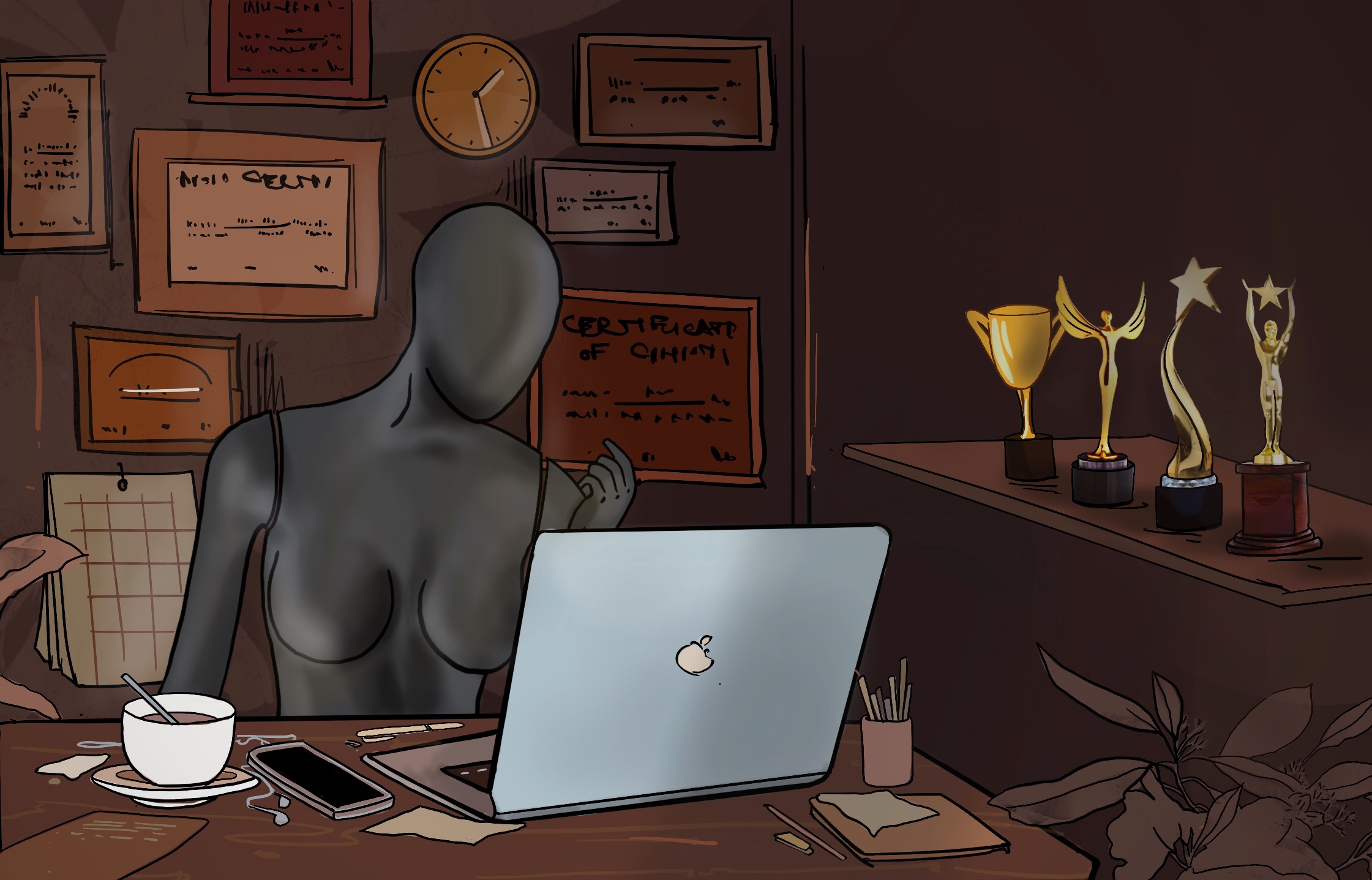“With a face and body like that, you belong in the front,” one of the former Front of House (FOH) managers at a restaurant I had just been hired at said to me, as I donned on a voluminous black chef jacket as opposed to a server’s slim black dress. The Back of House (BOH) managers said nothing. The cooks said nothing. The servers said nothing. And despite the array of males working in the kitchen, they most definitely did not receive the same opportunity — or rather, objectification.
That was the first time a male presumed to know where my capabilities and competency lay best, based purely on what I was holding atop of my shoulders and carrying between my legs.
I had just turned 15, and it was my first job. I didn’t think much of the remark. If anything, 15-year-old me thought it was a compliment.
Within five years in the service industry, I was cross-trained on all kitchen stations, filling in BOH managerial roles including expo, opening the restaurant by myself on weekend mornings, and leading brunch shifts running two to three stations simultaneously — in BOH with the “big boys.”
But fast-forward almost nine years since then and false predictors of a female’s success in a workplace are now more evident to me than ever.
Years of conditioning and influencing have absurdly led women into believing that some forms of objectification are flattery when, in reality, all forms are methods of fetishizing.
Women have too often placed their self-image at the hands of salivating men, even outside the workplace. And just as many times have women accepted male primitive behaviour as compliments or positive affirmations of their beauty.
Of course, to each their own. After all, subjective standards of beauty costing an arm and a leg seem to be all the advocacy these days. But any kind of objectification, especially in cases where there is focus on a female’s physical assets in a situation where they should be irrelevant (like the workplace), should not be taken as a positive compliment nor an indicator of their potential.
As if a piece of ass, instead of kicking ass, is all that we can possibly be good for.
A classic study conducted by Madeline Heilman and Melanie Stopeck in 1985 evaluated males and females in both managerial and non-managerial positions. “When women were evaluated in non-managerial positions, attractiveness led to a bump in performance evaluations. Yet, the flip side was that for women in managerial positions, attractiveness became a liability rather than an asset, causing decreased performance evaluations.”
As for the men in that study? “Attractive men were evaluated more positively, regardless of position.” Shocking.
Recent research from 2009 also demonstrates that by reducing a female down to her appearances in the workplace leads people to perceiving her as incompetent. As if a piece of ass, instead of kicking ass, is all that we can possibly be good for.
Further studies show that both critical and complimentary comments towards a woman actually contribute to appearance shaming, and in the workplace, contribute to “less productivity and worsened psychological well-being.”
Although we have made some waves, it’s unfortunate that since Heilman and Stopeck, we are still seeing recurring trends in North America. In 2019, a survey indicated that while 51 per cent of people “know a woman who has been sexually harassed at work,” half admitted that they haven’t spoken up about it.
At this point generally, I ought to be outlining a call to action, but it’s difficult to exhume persuasion for those who should be reading this and most likely won’t. So for those who have managed to make it this far, I both congratulate you and advise you to be cognisant of your opposite sex’s value as both a colleague and human being.
Where should you draw the line between fetishizing offences and harmless flatteries?
Well, how about you avoid both in the workplace and keep the compliments focused on work ethic instead? Is that a shocking answer? Good.
And if you want to appease a particular type of woman once you clock out, especially the trailblazers of the world, try complimenting her brain instead of pontificating from your penis. Salivating over her physical assets like a bloodhound is just about as alluring to her as watching grass grow.


